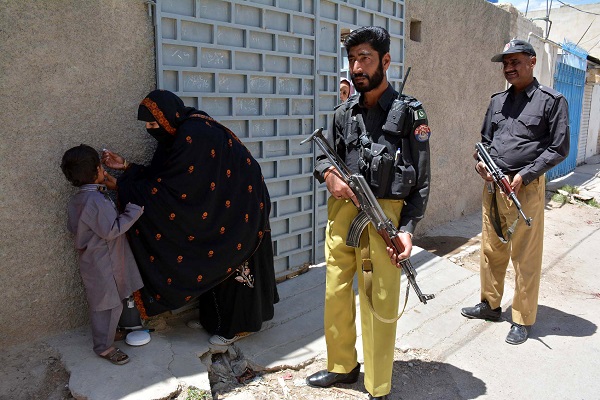
Islamabad, (Asian independent) The emergency committee of the World Health Organization (WHO) on the international spread of poliovirus has declared community resistance with refusals to vaccination, lack of female frontline workers, high turnover of frontline workers, weak health infrastructure and weak service delivery as major factors that caused back-to-back cases in Pakistan’s North Waziristan.
As the statement of the thirty-second Polio IHR Emergency Committee of WHO was released, authorities in Pakistan reported another case from the Mir Ali area of North Waziristan on Friday where an eight-month-old child was found to be affected by Wild Polio Virus 1 (WPV1), raising the number of cases to 11 in the country in 2022 so far, The News reported.
The committee meeting, which was convened by WHO Director General Tedros Adhanom Ghebreyesus, expressed concern over the recent outbreak of WPV1 in North Waziristan district.
Since the last emergency committee meeting in February 2022, Pakistan has reported 11 WPV1 cases from North Waziristan and two WPV1 positive environmental samples from the neighbouring district of Bannu.
“With the ongoing WPV1 circulation in South KP, the risk to the rest of Pakistan has escalated”, the emergency committee warned and said key challenges which hampered progress in polio eradication in southern Khyber Pakhtunkhwa included complex security situation, specifically in North and South Waziristan, which resulted in inadequate access of children to immunisation facilities, and reduced quality of supplementary immunisation activities (SIAs).
“Community resistance with refusals to vaccination (including vaccination boycotts and fake finger-marking without vaccination), lack of female frontline workers and high turnover of frontline workers, and weak health infrastructure and service delivery all pose challenges,” the statement read.
It added that the 10 WPV1 cases reported in 2022 had zero dose of routine immunisation, zero dose or under-immunised in SIAs, and belonged to families that had refused their immunisation.







